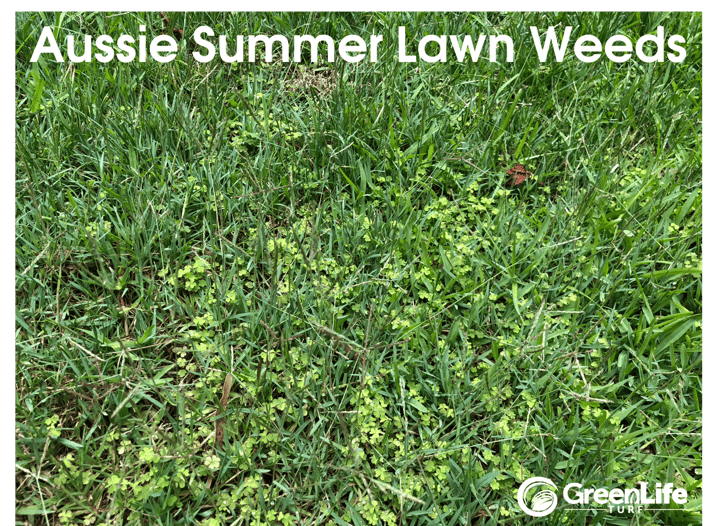 We’re well and truly into summer, and your lawn knows it. It’s been hot and wet so far in NSW, which means rich growing conditions for lawns – and weeds!
We’re well and truly into summer, and your lawn knows it. It’s been hot and wet so far in NSW, which means rich growing conditions for lawns – and weeds!
Weeds can suffocate and kill your lawn, so today we’re talking about the best way to kill off those weeds: how to identify them, what you can do about them, and how you can prevent them next season!
Varieties of Weeds
There are many different types of weeds, and your lawn despises them all. It would be impossible to list them all, so we've included some of the more common weeds you’ll find in summer Aussie lawns.
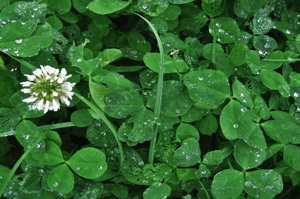 Clover
Clover
Botanical Name: Trifolium.
Identification: Clover-shaped leaves and white, ball-shaped flower.
Treatment: (1) Hand removal; (2) Selective herbicide* treatment.
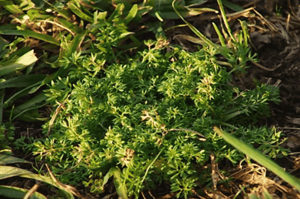 Bindii
Bindii
Botanical Name: Soliva pterosperma or soliva sessilis.
Identification: Fern-like, light green, rosette-shaped leaves. Oh, and they’re painful to step on!
Treatment: (1) Hand removal (use a thick glove!); (2) Selective herbicides* specifically for Bindii.
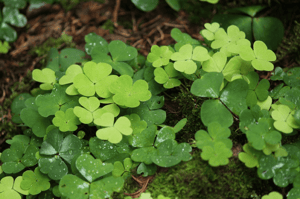 Oxalis
Oxalis
Botanical Name: Oxalis corniculata.
Identification: Pretty leaves and simple yellow flower.
Treatment: (1) Hand remove small plants; (2) Dig out sections of your lawn if required (replace or re-seed with the same lawn variety if required)); (3) Herbicide* for larger infestations.
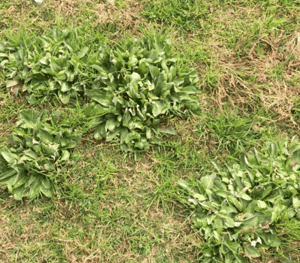 Cudweed
Cudweed
Botanical Name: Gamochaeta Calviceps.
Identification: Flat, shiny, rosette-shaped leaves.
Treatment: (1) Both hand removal and herbicide* treatments; (2) Dig up infestations in your lawn (replace or re-seed lawn with your lawn type if required).
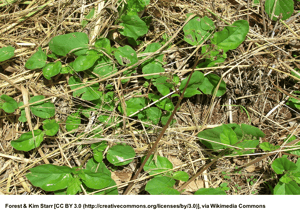 Tar Vine
Tar Vine
Bontanical Name: Boerhavia coccinea.
Identification: Low-lying and long if left to grow in the fashion of a vine, with oval, green leaves covered in hair and sticky to touch.
Treatment: (1) Non-selective herbicide*.
-min.png?width=300&name=Windmill%20Grass%20weed%20(edited%20from%20source)-min.png) Windmill Grass
Windmill Grass
Botanical Name: Chloris.
Identification: Large-ish growing tufts of (often) dry-looking grass.
Treatment: (1) Non-selective (knockdown) herbicides* should kill of your windmill grass.
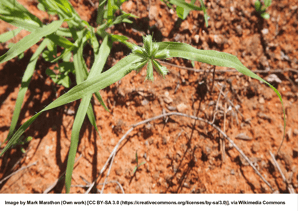 Button Grass
Button Grass
Botanical Name: Cactyloctenium radulans.
Identification: Long spindles and leaves, with a small flower with brush-like petals.
Treatment: (1) Spray with herbicides* before the plants become stressed (due to environmental conditions) and are unresponsive to herbicides.
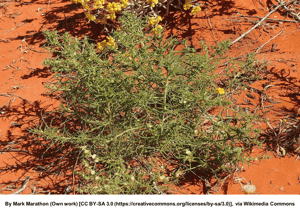 Roly Poly or Tumbleweed
Roly Poly or Tumbleweed
Bontanical Name: Salsola australis.
Identification: Ground level plants forming into the typical tumbleweed shape.
Treatment: (1) Herbicide (paraquat)*, the more mature the plant, the more you will need.
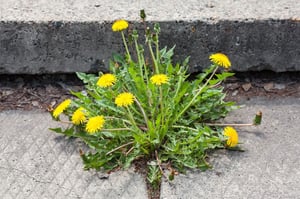 Dandelion
Dandelion
Botanical Name: Taraxacum.
Identification: Junior flowers are soft white balls – sometimes used to blow on for wishes and hilarious pranks. Adult flowers are a bright yellow.
Treatment: (1) Hand removal; (2) Herbicide* also works.
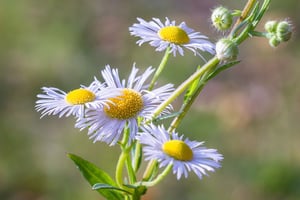 Fleabane
Fleabane
Botanical Name: Erigeron.
Identification: High-growing with spindly branches and daisy flower.
Treatment: Best treated when they are emerging; more difficult to kill in late summer. (1) Herbicide (paraquat)*.
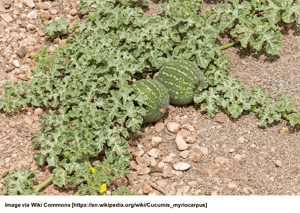 Melons - Paddy Melon & Afghan Melon
Melons - Paddy Melon & Afghan Melon
Botanical Name: Cucumis myriocarpus & Citrullus lanatus.
Identification: Tightly packed veiny leaves and their tiny melon-like fruits.
Treatment: (1) Hand removal; (2) Herbicide*.
Preventing Weeds for Next Time!
We recommend using a pre-emergent fertiliser.
What is a Pre-Emergent Fertiliser?
Pre-emergents are designed to be applied before the weed actually appears - before it 'emerges' from the soil.
The product works by forming a film that makes it difficult for weeds to grow through.
For recurring cases of weeds across each season, apply the pre-emergent before your weed begins to germinate.
Oxafert Pre-Emergent Fertiliser
Oxafert is the only pre-emergent fertiliser currently domestically available. It's great for a wide variety of weeds that are difficult to remove.
Oxafert also includes an NPK fertiliser so helps improve the overall health of your lawn, and because of this, it won't slow down the growth of your lawn as most herbicides do! We still recommend using a supplementary fertiliser all year round, not just when preventing weeds.
More information:
Be Ready for Spring Weeds! Here's How to Get Yours:

* When using herbicides, check the label for its suitability on your lawn type and consider your environment (kids, pets, wildlife, etc).













